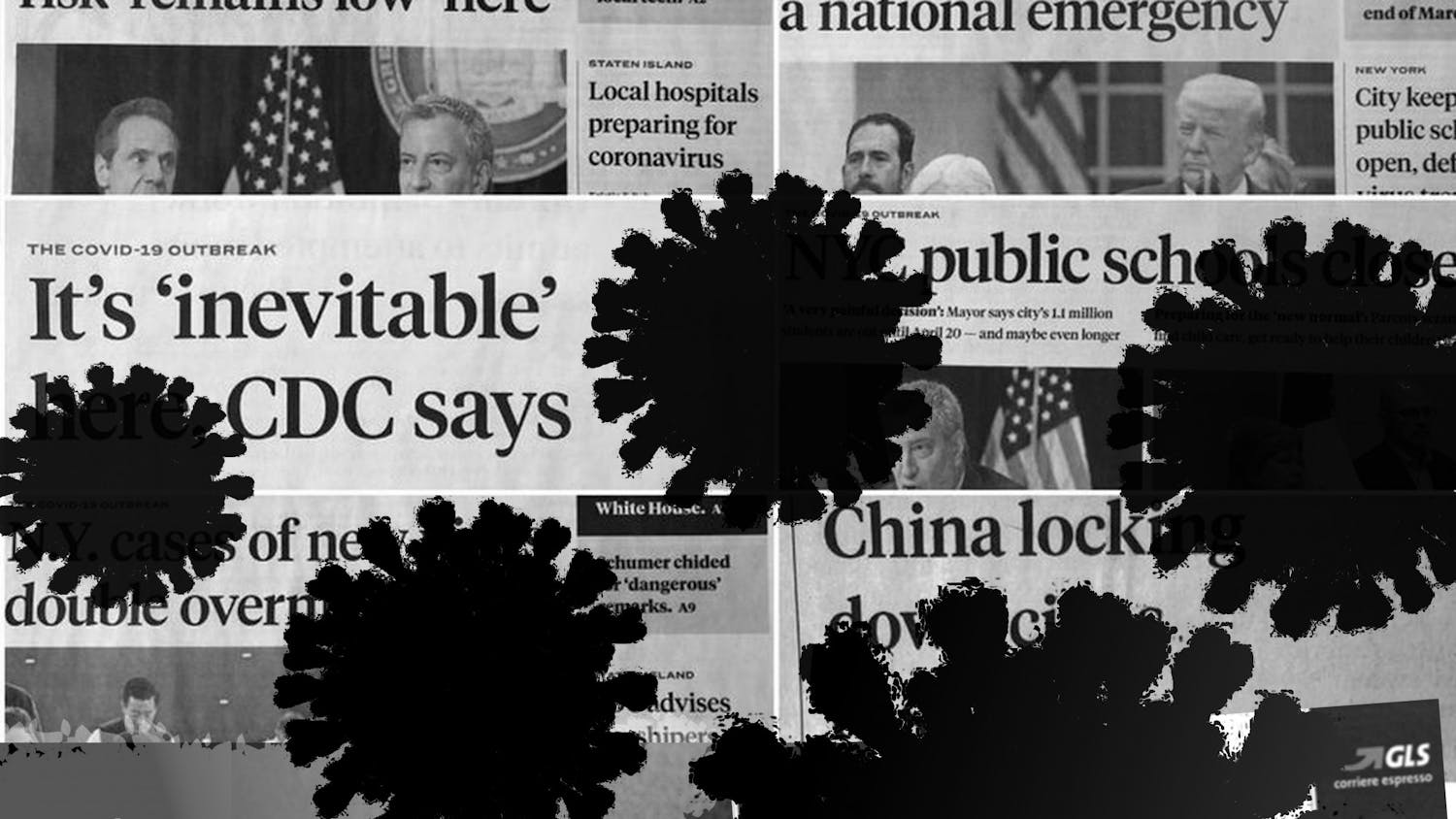Even commercials are talking about coronavirus. Companies from Walmart to Pizza Hut want Americans to know that they are “here for you” in these unprecedented times. When every connection to life outside the home is colored by the pandemic, at what point does it become too much? Mention of COVID-19 has become obligatory in everything from calls with friends to emails with professors, and it crops up everywhere from Zoom classes to television.
At its worst, this COVID-19 obsession takes the form of the relentless news coverage of the pandemic that’s continued since March. Every connection to the outside world is designed to remind us about the present circumstances, which become grimmer by the day. And when even the commercials on TV seem to all revolve around the pandemic, it becomes impossible to escape. For the physical and mental health of their consumers, journalists should make a concerted effort to broaden the scope of coverage outside of the COVID-19 pandemic.
Of course, information from health professionals is essential to ensure that Americans have knowledge of best practices to curb the spread of this disease. Americans must remain connected to — and informed by — both legislative and medical leaders. The media plays a key role in synthesizing essential information and transmitting it to the public. But when day after day, the front pages of America’s newspapers only present articles about COVID-19, that essential information becomes drowned out. Publishing more articles not solely related to COVID-19 would diversify coverage. This means that critical information would be highlighted, better ensuring that Americans remain up-to-date on new legislative orders and are informed of safe practices to reduce transmission.
This broadened coverage will not only keep Americans better informed, but it will also contribute to their mental health. Consolidating coverage of COVID-19 will free up room for lighter content. In a recent Los Angeles Times article on the damaging effects of the 24/7 news cycle, Dr. David Rock — a prominent neuroscientist and director of the NeuroLeadership Institute — suggested consuming no more than 10 minutes of coronavirus news per day. With COVID-19 articles plastered on the front pages of newspapers and television news pundits discussing the pandemic around the clock, the media peddles an unnecessarily high volume of pandemic material. As many of these stories offer little new information, they do not increase awareness. Instead, they generate a sense of helplessness and put a strain on the mental health of Americans.
The COVID-19 pandemic poses a difficult balancing act for journalists: ensure Americans remain informed by reporting essential information, but not contribute to excessive anxiety by providing too much information. Obsessive COVID-19 coverage can’t continue forever — if Americans cannot turn on the TV or open the newspaper without hearing about the pandemic, they will opt to leave the TV off and the newspaper shut. Many already have. If people reject the media altogether, they will become deprived of the essential news stories that help keep Americans safe.
Our present situation poses new challenges for all. Self-isolating from the world is an unnatural and difficult endeavor. If people are to remain at home, they must be given a respite, even if just for a moment, from our ever-worsening reality. “Happy at home” requires that people remain sane. The media does not need to be a part of the problem. It can offer an escape from the present situation. As journalists, we can make a concerted effort to broaden our coverage. We can rewatch an old movie and write a review. We can publish recipes or stories of hope. We can cover Dartmouth students doing meaningful things with the excess free time that a remote term offers.
Every morning, The New York Times releases an episode of their news podcast titled “The Daily.” Each episode does a deep dive into one news story. Since the world has closed down, morning after morning these episodes have unsurprisingly focused on the COVID-19 pandemic. Occasionally, and much to my delight, the day’s episode will steer away from the coronavirus. The podcast begins these special episodes with the title “A Bit of Relief.” And so, to every journalist out there: America could do with a few more bits of relief.


